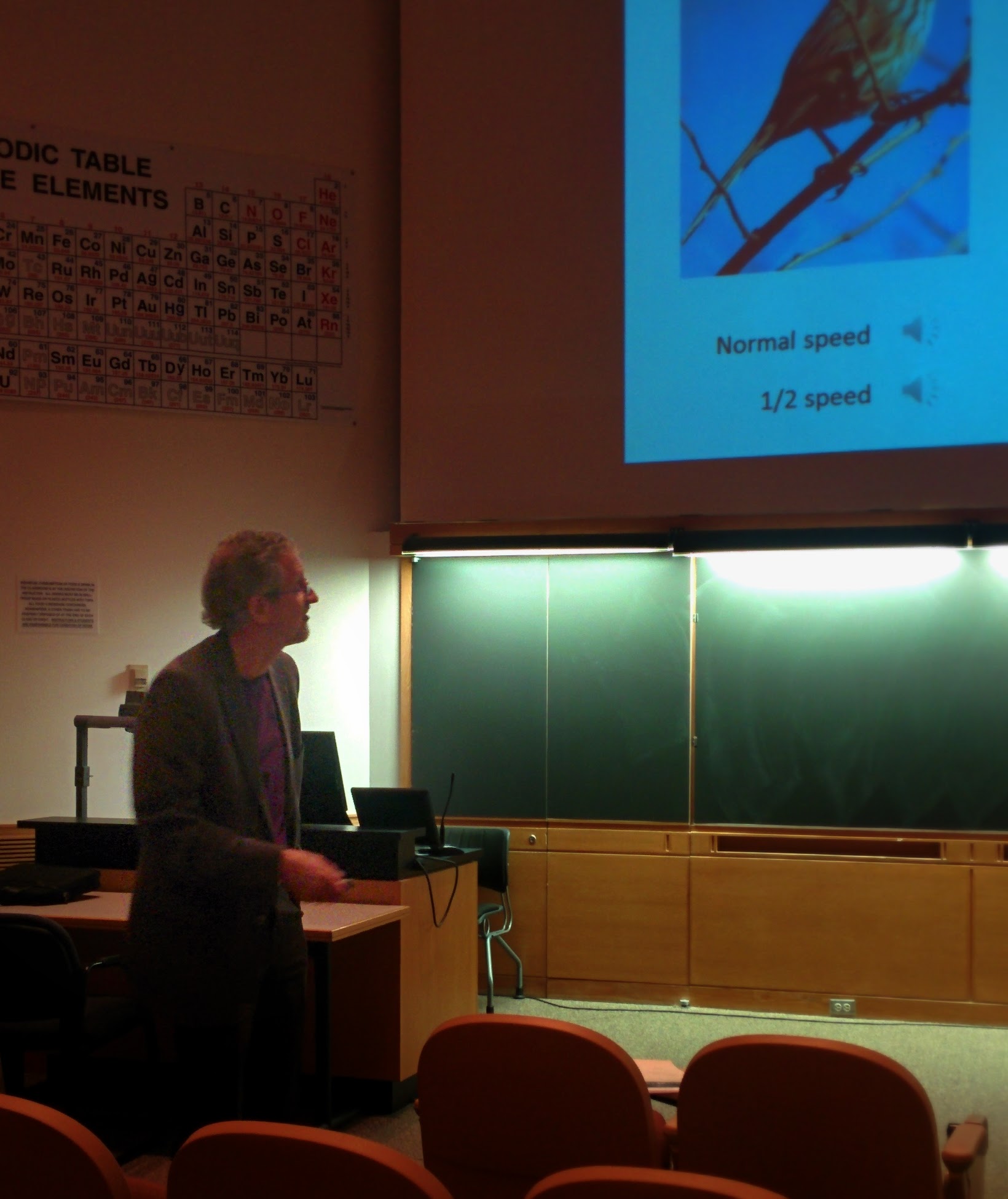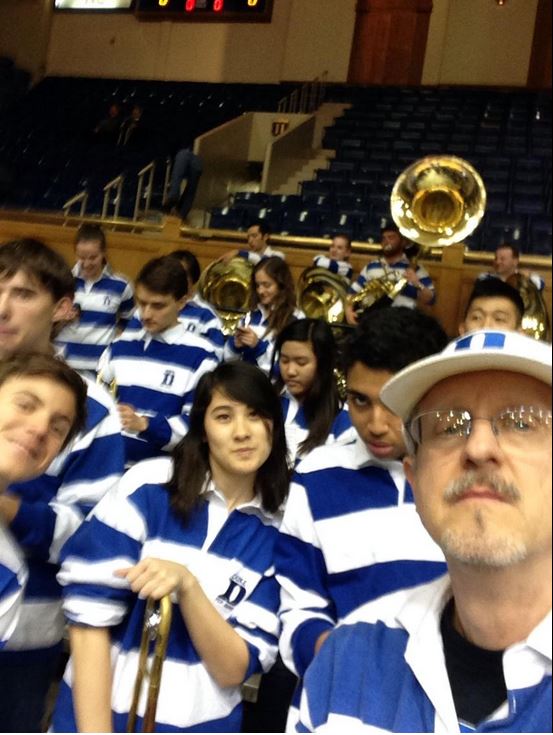By Duncan Dodson
“The only reason I got into the program I wanted to was because I was a pretty good low brass player—I’m actually sure of it!”
Stephen Nowicki, Dean and Vice Provost of Undergraduate Education, chuckles as he recounts his journey from early scientific beginnings to his most recent research. As part of Duke BioCoRE program, prominent Duke Scientists are asked to answer the question, “Why am I a scientist?”

Nowicki explains his most recent research with swamp sparrows and phonemes, the smallest derivative of vocal communication, at Love Auditorium January 23, 2015.
Nowicki started his answer to that question on January 23 with a picture of a dissected—well more like massacred—frog, commenting that he never thought he liked science because of his high school science courses that were not well-taught.
“All I remember from that course was dissecting a frog, and not knowing what I was supposed to get out of it.” This led him to pursue a music major at Tufts University. It was Tufts’ equivalent of Duke’s Trinity requirements in a natural science field that led to an ironic turn of events—quickly picking up a biology double major.
“I had some friends that said ‘Oh you should take this biology course,’ and I did and it changed my life, because it was really well taught,” he said. From there, his mentor at Tufts reached out to a colleague, the head of a competitive graduate neurobiology program at Cornell, Tom Eisner. Eisner mentioned to Nowicki that he was looking to start an amateur orchestra at Cornell; Nowicki responded that he could play lower brass, sparking Eisner’s interest, and ultimately, according to Nowicki, his acceptance into the program.
Flash forward about 30 years. Nowicki has an impressive career in the field of neurobiology. His most recent publication challenges the neurological methods in which swamp sparrows process the subtle differences of phonemes, the smallest derivatives of vocal communication, in other birds’ songs.

Nowicki’s tweet (@SteveNowickiDU) January 13, 2015. “Back where I belong at last!” Nowicki is a regular in the Cameron pep band who has always combined his passion for music with a curiosity for science.
Nowicki spent a majority of his talk relating entertaining anecdotes about his work with “Robobird,” a titanium swamp sparrow used to test these theories.
He repeatedly stressed the importance of curiosity, which led him to discover subjects he was passionate about. He discussed the process of instilling the same kind of curiosity in three undergraduate engineers through the two-and-a-half year research project. “[The first year engineers] didn’t have a clue, but they were not deterred. When they started to understand the problem they just kept digging in and digging in.”
When asked why he is a scientist, Nowicki responded, “I was lucky to run into mentors who revealed me to aspects of science that interested me, and I wasn’t afraid to fail.”
